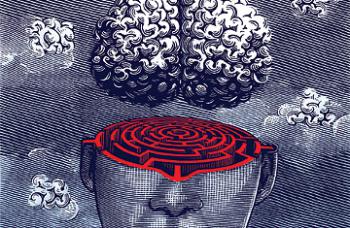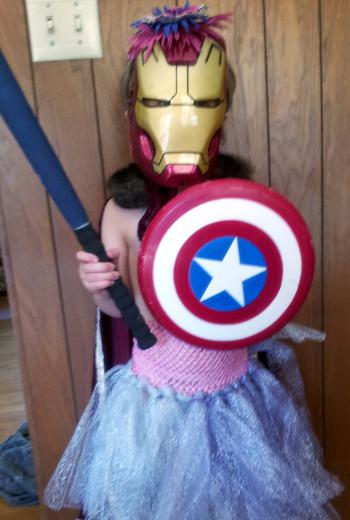Serendip is an independent site partnering with faculty at multiple colleges and universities around the world. Happy exploring!
Blogs

The Desire of Common Sense (co-written with Natalie Schall)
We all have ideal stories for book characters. When we see a character struggling, common sense takes over and forces the reader to think about how their story should be happening. Zadie Smith’s NW refuses to allow the reader have this perfect story, and instead defies the flawlessness of common sense for all characters.
From a common sense point of view, Felix would be perfectly happy in his relationship and sure that it’s right for him, without having to check that he loves Grace because he doesn’t like sex with other women anymore. In a perfect world, he would separate himself from anything to do with Annie, his ex-girlfriend with whom he still has sex and meaningful conversations with.
It isn’t that Felix is not happy with Grace, just that he’s not as happy as he could be. She is not his true love, but she is good enough that he can feel content and safe spending the rest of his life with her. Especially after going back to Annie and double checking that Grace is, indeed, seemingly better for his sake.

Why Friendship changes?
Why Friendship changes?
As I claimed in my last paper, the central relationship in the book NW by Adie Smith is the lifelong friendship between Natalie/Keisha and Leah. They have become best friends since grade school. However, when they grew up and became adults, their lives have spun in different directions, and then, their friendship changes. I am curious about the reasons and weather it is a common problem in women’s friendships.
“Leah took Keisha’s hand and ran back to the flat holding hands the whole way because they were best friends bonded for life by a dramatic event and everyone in Caldwell best know about it.”(Smith 203-204)
When Leah and Keisha/Natalie, the main character of the book, were young, they became best friends-- they grew up in the same housing development, attended the same school, played in the same parks and experienced a lot with each other.

Education and Social Mobility
Ellen Cohn
Play in the City
10/31/13
In Zadie Smith’s novel, NW, the reader follows many characters through their lives, and the random events that take place. We follow some characters, like Natalie and Frank, to success. We also see some characters, like Rodney, who are not quite as successful. This leads me to question how education, and differences in education, might lead to different outcomes in terms of socioeconomic status and “success”.
John Goldthorpe used the term “education-based meritocracy” to explain how a higher education system (colleges and universities) that is based on merits rather than socioeconomic background can lead to more social mobility between the classes (Goldthorpe 234). In Natalie and Rodney’s cases, they were able to win scholarships to attend a good school, where they could study hard and network to meet people like Frank De Angelis who, in Natalie’s case, would open a door to a higher class and more opportunities.
Unfortunately, although Rodney worked harder that Frank, Frank was born into a richer class. Because of this, Frank became more successful with much less exerted effort. This shows that, although merit-based education is supposed to increase social mobility, the majority of the time, it only works to reproduce already existing social structures.

The Mayhem of our Minds
 I was blown away by Zadie Smith when she came to Bryn Mawr in October. She spoke to us about death, a seemingly faraway yet haunting eventuality for us twenty-somethings. She was so regal and so honest and humble that it made me want to be her. I thought that because she was so versed in matters about death, inspiration, ambition, and the hoop-jumping of novel-writing, her book NW would blow my mind. I thought it was going to answer all the awfully grey and misty questions about humankind. I thought I would love Leah or Natalie/Keisha like I love Jay Gatsby from The Great Gatsby by F. Scott Fitzgerald.
I was blown away by Zadie Smith when she came to Bryn Mawr in October. She spoke to us about death, a seemingly faraway yet haunting eventuality for us twenty-somethings. She was so regal and so honest and humble that it made me want to be her. I thought that because she was so versed in matters about death, inspiration, ambition, and the hoop-jumping of novel-writing, her book NW would blow my mind. I thought it was going to answer all the awfully grey and misty questions about humankind. I thought I would love Leah or Natalie/Keisha like I love Jay Gatsby from The Great Gatsby by F. Scott Fitzgerald.

You Are You: Looking at the Sexism and Intolerance of Gender Non-Conforming Children
 The photograph to the left features a child prepared to celebrate Halloween, clad in a hybrid superhero-princess costume, titled “Iron Flower Captain Bat Man” (Levi Sable 2013). At first glance, we praise and admire both the creativity and courage of the young girl, and her parents for that matter, for going against the norm of dressing as strictly feminine archetypes. But the moment we learn that the child is actually a young boy in a gender-clashed costume, our perceptions change entirely towards confusion and concern. Is something wrong with him? Is he gay? Halloween is intended to be a joyous time to become a character that you normally couldn’t be. Why is it that a boy and a girl in the same exact costume are interpreted so differently? Embedded in our culture is an attitude that a masculine female is strong, empowered, and independent, while a feminine male is weak, sensitive, and queer.
The photograph to the left features a child prepared to celebrate Halloween, clad in a hybrid superhero-princess costume, titled “Iron Flower Captain Bat Man” (Levi Sable 2013). At first glance, we praise and admire both the creativity and courage of the young girl, and her parents for that matter, for going against the norm of dressing as strictly feminine archetypes. But the moment we learn that the child is actually a young boy in a gender-clashed costume, our perceptions change entirely towards confusion and concern. Is something wrong with him? Is he gay? Halloween is intended to be a joyous time to become a character that you normally couldn’t be. Why is it that a boy and a girl in the same exact costume are interpreted so differently? Embedded in our culture is an attitude that a masculine female is strong, empowered, and independent, while a feminine male is weak, sensitive, and queer.
Minecraft 10/31-10/01
A Struggle:
Finding cows to turn my humble garden into a farm.
An Accomplishment:
I have been building up my home and creating my own space in the Minecraft world. I know have a small sustainable garden in which I grow wheat to make bread to feed myself so I don't starve to death.
An Observation:
I noticed that another student in the class built her entire empire using glass and other tools I was not familiar with. It seemed like she had done an amazing job laying out her space in the game world and it looked something next to amazing. I was a bit envious coming from a home with a 2 layered stone wall and no roof but when I asked her in class how she was able to do it, she told me to check the wiki and she gave me other tips. When I tried that and it didn't work, I asked her if I could trade her some wheat for a cow because I couldn't find any in the world that weren't hers and she said yes. Something I mentioned in an earlier post was how lonely the game world felt. There isn't a real efficient way to communicate with someone in the game but when I saw the students' home and talked to her about it in person, she said it was totally okay to make that trade for wheat. This made me feel somehow less alone in the game world because although that vital communication factor was missing from the game, I could still interact with those personas in real life and maintain that sociality. Hopefully that makes more sense than I think it does.
A Question:

Exciting News from Germany!
"Germany has become Europe's first country to allow babies with characteristics of both sexes to be registered as neither male nor female."
http://www.bbc.co.uk/news/world-europe-24767225

Web Event 2
Hair Politics: Afros, Braids and Locks in schools
“Trying to make hair beautiful on the outside causes damage deep inside”, declares an ad for Dove hair moisturizer. And indeed trying to straighten, curl, color and do a number of things with hair, especially women’s hair, can cause damage to the follicles. But this “damage deep inside” is more than just physical damage to the hair itself. The cost of beauty in America for young girls, and most specifically Black girls, is destructive. The Europeanized standard of beauty that dominates American culture is one that most Black women naturally cannot match up with, but the pressure to do so is tremendous. From TV ads, to billboards, actresses in movies, Barbie’s, and models, long, straight, silky hair has been a celebrated characteristic. So to match up with these “ideal images” many Black girls and women alike go through processes to straighten and lengthen their hair. But many of these processes involve chemicals and heat that damage the hair. Even more damaging though, is the lowered self-esteem of those who cannot attain what the popular media deems as “beauty”.

What is the patriarchy?
"Importantly, whether feminist or not, we all need to remember that visionary feminist goal which is not a women running the world as is, but of women doing our part to change the world so that freedom and justice, the opportunity to have optimal well-being, can be equally shared by everyone – female and male." -bell hooks
In one of my other classes, we have been watching clips from the PBS documentary, "Makers: Women Who Shape America". Although I have not watched the documentary in it's entirety, I was not surprised that the images shown were predominately white women (except for fleeting moments of Oprah, Claire Huxtable, Melissa Harris-Perry, ie Black Exceptionalism). This was (as per usual) a friendly reminder that mainstream-public sphere feminism/women right's STILL does not really include me.
All of the women showcased in the documentary are amazing. Many of the interviews included personal ancedotes illustrating "the moment" where in which the GLASS CEILING was shattered, examples of blatant sexist oppression and prejudice, and the solidarity that all of us share as women. However I immediately grew bored--given that this is the same message just different packaging. Of course I want these voices to be celebrated but if this documentary is about the "the women that shape America", then shouldn't it be asking--whose America? how have they shaped it? and why?
NPR story about addiction to games as cultivated by gaming companies
http://www.npr.org/blogs/alltechconsidered/2013/10/30/241449067/how-video-games-are-getting-inside-your-head-and-wallet?utm_medium=Email&utm_campaign=20131103&utm_source=mostemailed


